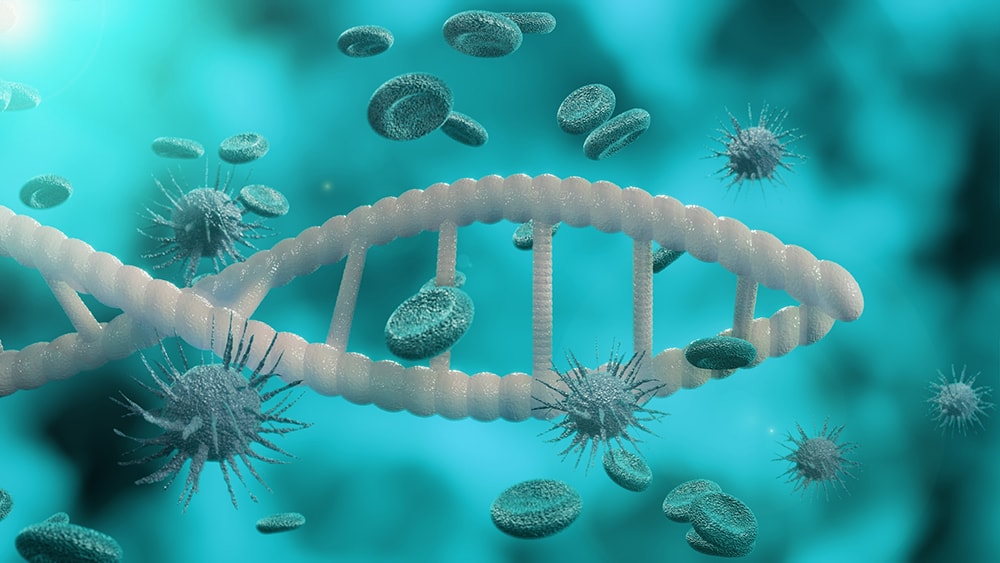SARS-CoV-2 Mutations: Michigan State University Machine Learning Study Shows That Five Out of Six SARS-CoV-2 Subtypes Have Become More Infectious
Source: COVID-19 Mutations Aug 22, 2020 5 years, 5 months, 3 weeks, 4 days, 4 hours, 56 minutes ago
SARS-CoV-2 Mutations: A new machine learning model incorporating a new generation of artificial intelligence (AI), developed by researchers at Michigan State University indicate that mutations to the SARS-CoV-2 genome have made the virus more infectious.

The machine learning model, developed by lead researcher Dr Guowei Wei, Professor in the departments of Mathematics and Biochemistry and Molecular Biology, analyzed SARS-CoV-2 genotyping from more than 20,000 viral genome samples. The researchers analyzed mutations to the spike protein, the protein primarily responsible for facilitating infection and found that five of the six known virus subtypes are now more infectious.
The study findings are published on a preprint server by Cornell University and have yet to have been peer-reviewed.
https://arxiv.org/abs/2005.14669
Many mutations are ultimately benign, posing little to no risk to infected patients. Some mutations even reduce infectiousness. But some mutations lead to a more infectious virus.
Dr Wei and his co-researchers have studied and analyzed mutation patterns and locations for months, tracking changes against the official viral genome sample captured in January.
The team found that there was continuous evolution of SARS-CoV-2 due to its existing 13752 SNP variants in six distinct clusters. Based on binding affinity changes, the researchers found that mutations have made five out of six clusters of SARS-CoV-2 more infectious than the original virus found in Wuhan. Additionally, based on sequence alignment and mutation-induced binding affinity changes, the team found that SARS-CoV-2 [31] is slightly more infectious than SARS-CoV found in 2003. Also, by systematically computing the binding affinity changes of all possible identified 3686 future mutations to unveil which of those that will most likely mutate further to strengthen SARS-CoV infectivity, the team predicts that residues 452, 489, 500, 501, and 505 on the receptor-binding motif (RBM) have high chances to mutate into significantly more infectious COVID-19 strains with residue 505 displaying high propensity.
Dr Wei said. “Knowledge about the infectivity of SARS-CoV-2 is a vital factor for preventive measurements against COVID-19 and reopening the global economy. A crucial question is what are the ramifications of these mutations to COVID-19 transmission, diagnostics, prevention and treatment.”
He told Thailand Medical News, “Viral infection occurs when the spike protein interacts with a human host cell receptor called angiotensin converting enzyme 2 or ACE2 for short. As it relates to ACE2, scientists are concerned about a concept known as binding affinity, or the strength of the binding interaction between the spike protein and host receptor during the initial stage of infection. Viral infectivity increases if the binding affinity strengthens,”
He added, “Currently, more than 50 mutations have been found along with the binding interface on the spike proteins receptor-binding domain or RBD for short, which has 194 possible mutation sites.”
Dr Wei’s machine learning model, an advanced neural network, analyzed more than 8,000 protein interaction records to determine the impact of the current known mutations on the binding aff
inity of the SARS-CoV-2 spike protein. The result, which suggested increased binding affinity in five of the six known subtypes, indicated that infectivity may have increased as a result of the mutations.
Importantly, concerned about the potential for further mutation, Dr Wei and his team turned their model to the future.
Dr Wei added, “It is extremely important to know whether future SARS-CoV-2 subtypes would pose an imminent danger to public health. To this end, we have conducted a systematic screening of all possible 3,686 future mutations on 194 possible mutation sites along the RBD.”
Dr Wei’s model predicts that multiple residues on the receptor-binding motif- a component area of the RBD have high chances to mutate into more infectious COVID-19 strains.
Dr Wei cautions that although artificial intelligence based predictions are consistent with available experimental findings, further studies are needed to fully understand mutation impacts on COVID-19 infectivity, which is vital to the public health response to COVID-19.
Dr Wei and his team also predict that the novel coronavirus spreading around the world is slightly more infectious than the original SARS virus discovered in 2003.
Dr Wei said the results align with those of another study recently published by researchers at the Scripps Research Institute in Florida. This study examined spike protein mutations in a laboratory setting, also finding that the virus is mutating in ways that increase its infectiousness.
Wei is a faculty member in MSU’s College of Natural Science in the departments of Mathematics and Biochemistry & Molecular Biology, and in the College of Engineering in the department of Electrical and Computer Engineering.
For more about
COVID-19 Mutations, keep on logging to Thailand Medical News.
